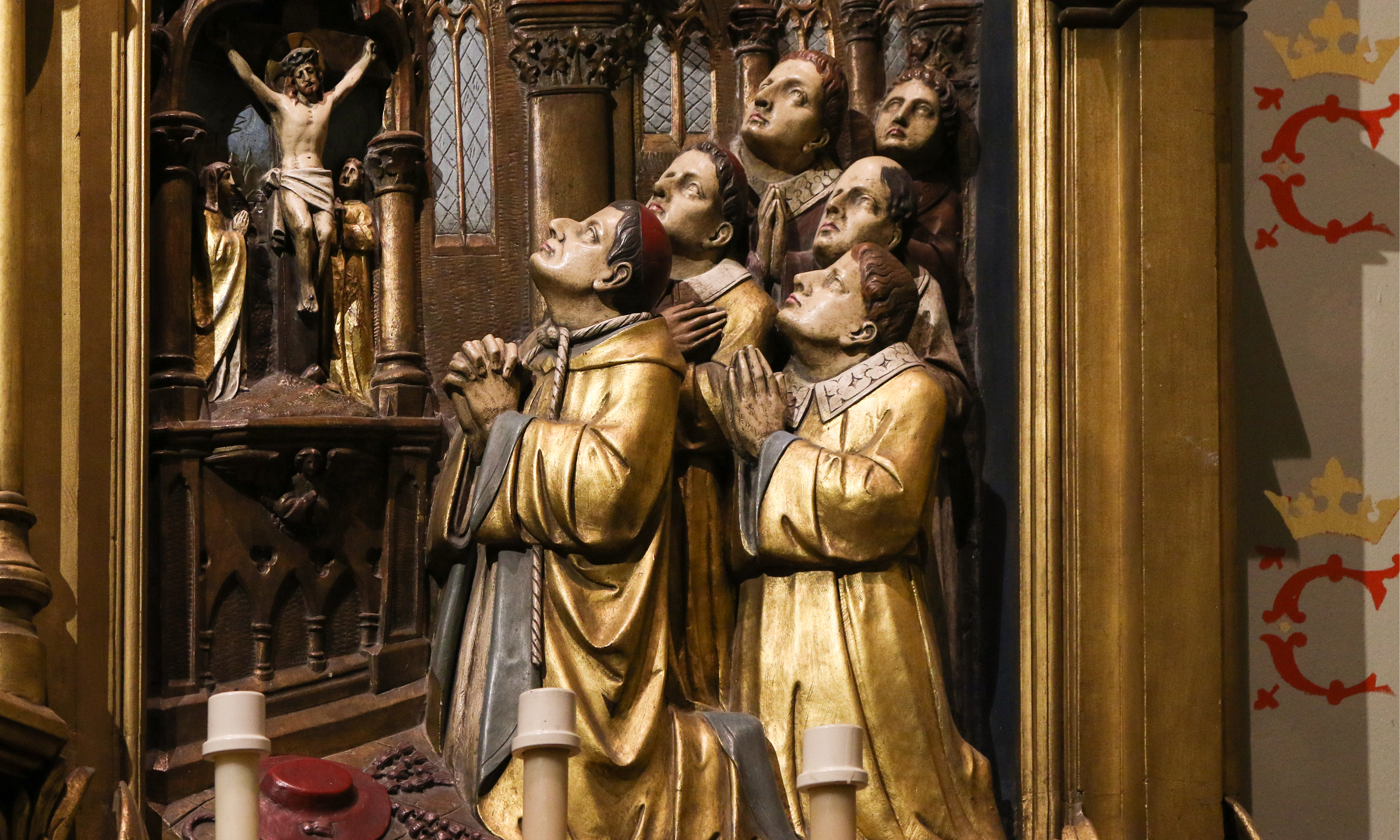Have you ever had that experience where words that you have said thousands of times suddenly hit you in a new way? It could be saying “I love you” to a family member, or the words to a song that has a special meaning to you, or something patriotic like the Pledge of Allegiance or the National Anthem. Or it could be the words of the Mass. The words of the Mass have been handed down for over a thousand years and are filled with the Christian wisdom of the past generations. We don’t need to understand everything in the Mass in order to receive grace, but we can enter more deeply and more effectively into the prayer of the Mass by meditating on the words that the priest says and also the words that we say as members of the congregation.
I was suddenly struck one day earlier this year by the words of the Confiteor, the prayer we say all together at the beginning of Mass telling God we are sorry for our sins. In that prayer we pray: “I confess to Almighty God and to you, my brothers and sisters, that I have greatly sinned … therefore I ask blessed Mary ever-Virgin, all the Angels and Saints, and you, my brothers and sisters, to pray for me to the Lord our God.” As a religious, I pray this prayer daily, at Mass in morning and every night at the beginning of our last community prayer of the day, Compline. So many of my days begin with this prayer and every day ends with it.
What suddenly struck me about this prayer is it’s communal character. I suddenly realized that I am not only asking God for mercy and the angels and saints for their prayers: I am also asking everyone to pray for the forgiveness of my sins, and I am in turn being asked by everyone around me to pray for them. Why had I never thought about the fact that each and every person at Mass or Compline was asking for my prayers? Perhaps I had just let the familiar words wash over me. In any case, I suddenly heard them. I realized that I had been overlooking a responsibility—to pray for my brothers and sisters as they had asked me. At the same time, a thought occurred to me: “Why yes, some of them really do need my prayers—some of them are a real pain in the neck!” But the very next moment I felt myself blushing with shame—it was precisely because of this attitude that I needed everyone to pray for the forgiveness of my sins.
This is the wisdom of Holy Mother Church: I am asked to pray for the sins of my brothers and sisters at precisely the moment when I am invited to reflect on my own wretchedness and desperate need for mercy. Lest I be like the servant in the Gospel, who after having been forgiven a vast debt himself turns and violently demands payment from his fellow servant (Mt 18:21-35), I am reminded that we both owe an infinite debt to our master and would do well to ally with one another in seeking mercy. As St. Paul says, “all have sinned and are deprived of the glory of God,” and likewise all “are justified freely by his grace through the redemption in Christ Jesus” (Rom 3:23-24). We’re all in this together. Our prayers for forgiveness are a deeply effective participation in Christ’s own prayer for the forgiveness of sinners, which he made even from his cross. Therefore, let us rejoice that our God is a God of mercy who desires to forgive us and so inspires us to ask for forgiveness and even invites us to share in his own ministry of mercy through our prayers for one another. Let us answer his invitation so that we may all, as forgiven sinners, share in the Easter joy of our Savior.
✠
Photo by Fr. Lawrence Lew, O.P. (used with permission)







